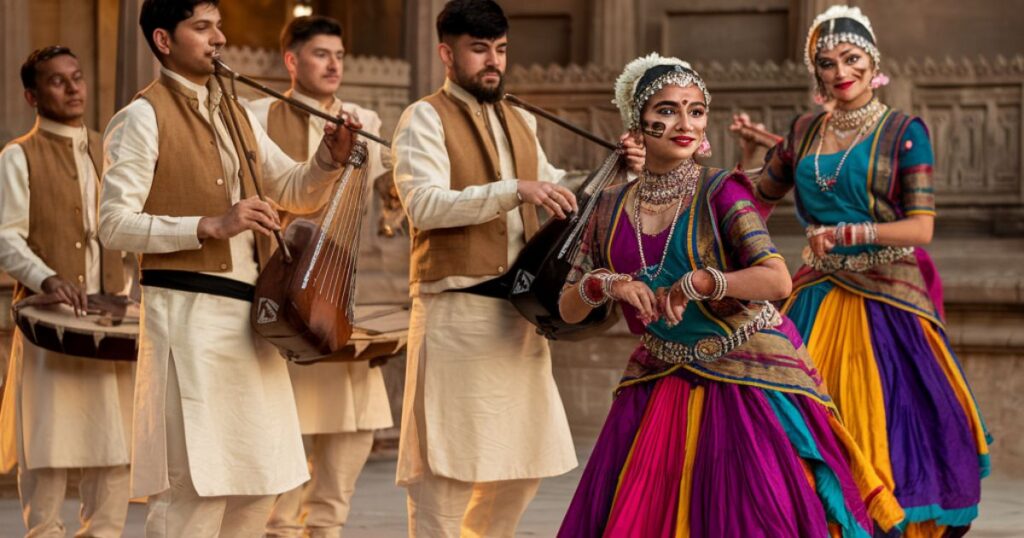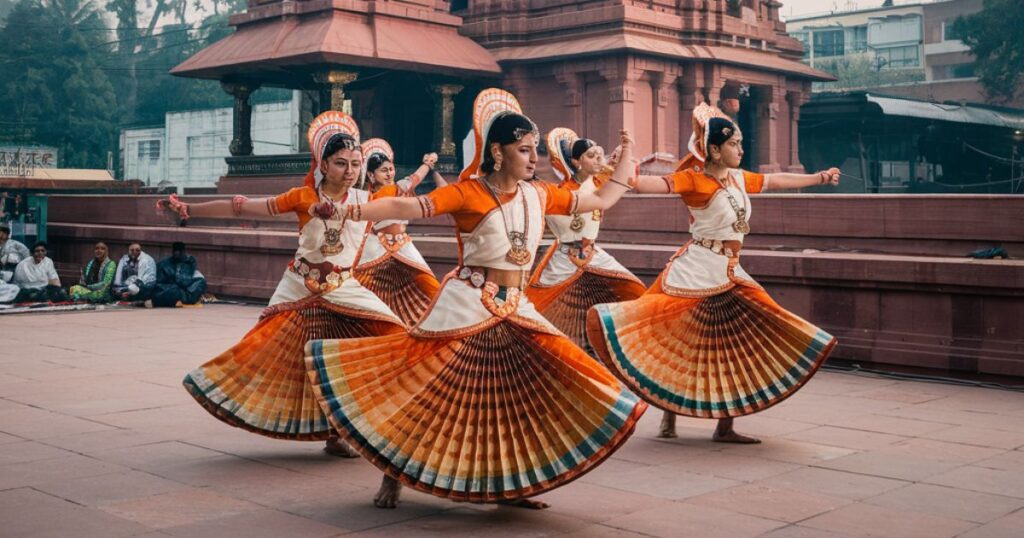- Introduction
- What is Agrawau?
- Historical Background
- Cultural Significance
- Relevance and Significance
- The Economic Impact of Agrawau
- The Role of Agroha in Agrawal Culture
- Cultural Practices and Traditions
- Evolution Through Time
- Identity and Values
- Agrawal Cultural Practices
- Influence on Modern Commerce
- The Connection Between Agrawal and Agrawal
- Challenges Faced by Agrawau
- Future of Agrawau
- Conclusion
- FAQs
Introduction
Agrawau is a term that sparks curiosity and invites exploration. Whether it refers to a historical location, a cultural tradition, or a unique concept, it has captured the attention of people seeking to understand its essence.
In this article, we will uncover the roots and significance of Agrawau, its cultural and historical background, its impact on society, and the legacy it has created.
What is Agrawau?
Agrawau could represent a variety of interpretations depending on its origins. Often, terms like this may have rich historical or cultural backgrounds. Here, we will explore possible meanings, including geographical, cultural, and symbolic implications, while aiming to provide a complete picture for readers unfamiliar with this.

Historical Background
The history of Agrawau can be traced back to ancient times if it was part of an old civilization or a historically significant area. In many cultures, certain places or terms develop over time, carrying stories of the past with them. By studying Agrawau’s roots, we can gain a better understanding of its place in history and its journey through time.
You can also check Ur2dwaifu
Ancient Times and Development
Agrawau may have started as a small settlement, community, or cultural hub. Over time, it might have developed into a notable location or symbol within its region, shaping the culture, traditions, and daily lives of the people who lived there.
Evolution Through Different Eras
Agrawau could have evolved as a location or concept through various historical periods. This evolution likely brought changes that adapted this to new social, political, or economic circumstances, shaping its identity further.

Cultural Significance
Cultural heritage is a valuable asset that connects people to their roots, and Agrawau holds a unique place in cultural traditions. We will explore how it has influenced language, art, customs, and the daily lives of those connected to it.
Influence on Language and Traditions
Agrawau may be a term embedded in language or idioms, representing certain values or traditions. In many cultures, specific words or names can carry deep meanings, serving as metaphors or symbols in literature, storytelling, and even folklore.
Must Visit cast of the super mario bros. movie
Agrawau in Festivals and Celebrations
If Agrawau is connected to festivals or celebrations, this section will highlight how it is honored or celebrated. Communities often celebrate their heritage by remembering places, people, or symbols with festivals that unite them, and it may be one such symbol.
Relevance and Significance
In today’s context, this might hold a different but still meaningful role. The transition from historical significance to contemporary relevance is essential in keeping cultural heritage alive.
Agrawau in Today’s Society
Agrawau could now serve as an inspiration for various forms of modern art, literature, or local industry. Many heritage sites or terms gain renewed importance when they are embraced by the modern world, and Agrawau may have adapted to serve new functions for today’s communities.
Preservation and Promotion Efforts
If Agrawau has a historical site or cultural aspect worth preserving, preservation efforts may be in place. Museums, cultural centers, and local governments often engage in promoting such heritage, which helps in maintaining cultural integrity and educating future generations about Agrawau’s significance.
Have a look at DarlingBoo
The Economic Impact of Agrawau
Historical and cultural heritage often contribute to the local economy. Agrawau could play a role in tourism, attracting visitors interested in exploring its history and culture.
Tourism and Local Economy
If Agrawau is a travel destination, tourism may boost local businesses, helping the community prosper. This section would explore how Agrawau contributes to the economy and what opportunities exist for people connected to it.
Cultural Products and Crafts
Many historical areas are also known for traditional crafts, art, or products. Agrawau could have specific crafts or items that people associate with it, providing an economic link through cultural products.
The Role of Agroha in Agrawal Culture
Agroha holds a special place in the hearts of the Agrawal people. It is not only the birthplace of Maharaja Agrasen, the revered king of their ancestors, but also the cultural and commercial center of their empire. The traditions and architecture of Agroha still reflect the values held by the Agrawal people, who have always been committed to trade, fairness, and helping others. Agroha is seen as a city of great importance because of its historical temples, relics, and customs. These elements reveal much about the way of life and culture of the Agrawal community.
Cultural Practices and Traditions
The Agrawal community has kept many cultural practices and traditions alive, which reflect their spiritual and historical beliefs. The key values in their celebrations include loyalty to family, kindness to neighbors, and honesty in dealings with others. These traditions help strengthen the community’s identity and provide insight into the shared principles that shape their lives. Agrawals show their respect for their heritage by celebrating events such as Agrasen Jayanti, a day dedicated to remembering Maharaja Agrasen.
Evolution Through Time
While the Agrawal community has held on to its traditions, it has also embraced modern changes. The Agrawals have found a way to balance their ancient values with the opportunities of today. Over the years, members of the Agrawal family have achieved success in various fields such as business, education, and charity work. This shift shows that the Agrawal people continue to grow and adapt while still keeping their heritage alive. Today, they remain a strong and respected community, blending tradition with modernity.
Identity and Values
Community Values of Agrawals
The Agrawal culture is built on honesty, kindness, and a sense of responsibility toward others. These principles are deeply woven into the daily lives of the Agrawals. These values play an important role in their identity, influencing everything from their business practices to the way they treat one another. Being truthful, helpful, and caring for the community are key elements that define the Agrawal way of life.
Leadership and Philanthropy
Maharaja Agrasen’s teachings continue to guide the Agrawals, especially in their charitable work and leadership. Agrawals are known for their commitment to improving healthcare, education, and social welfare in their communities. This dedication to public service reflects their cultural values of selflessness and community support, encouraging others to follow the same path of generosity and responsible leadership.
Commitment to Commerce and Trade
Trade has been an essential part of Agrawal society since the time of Maharaja Agrasen. However, for Agrawals, trade is more than just a way of making a living; it is a core aspect of their culture that is based on honesty and mutual respect. The Agrawal people are respected in the business world for their fairness, and their commitment to ethical practices has earned them a strong reputation. They believe that honest trading leads to prosperity for everyone involved.
Family and Social Harmony
In Agrawal culture, family is highly valued as the foundation for a fulfilling and happy life. Love, respect, and loyalty are the building blocks of strong family relationships. The Agrawal community emphasizes the importance of maintaining close family ties, education, and moral values. These qualities create a supportive environment where everyone in the family can thrive. This focus on family bonds also strengthens the social fabric of the community, making it a harmonious and close-knit group.
Agrawal’s Relationship with Nature
The Agrawal people have a deep respect for nature and the environment, a belief that stems from the sustainable policies of Maharaja Agrasen. He encouraged living in harmony with nature, and this philosophy continues to influence Agrawal values today. The Agrawals are committed to sustainable practices and often take steps to protect the environment and give back to the natural world.

Agrawal Cultural Practices
Unique Rituals and Customs
Agrawal traditions are rich in symbolism. Their rituals and ceremonies are carefully performed with the hope of receiving blessings for health, wealth, and peace. These customs are not only spiritually significant, but they also help teach and reinforce Agrawal values. Rituals such as weddings, housewarmings, and religious events bring the community together, making them important moments for shared values and support.
Festivals and Celebrations
Agrawal festivals are a time for the community to come together and celebrate. These events often include traditional music, dance, and feasts, providing an opportunity for the community to celebrate their cultural heritage. Major festivals like Holi, Agrasen Jayanti, and Diwali are celebrated with much enthusiasm and are a time for Agrawals to show their pride in their culture and history. These festivals allow them to reconnect with their roots and pass down traditions to the next generation.
Traditional Clothing and Attire
Traditional clothing plays an important role in expressing Agrawal heritage. During special events like weddings, festivals, or religious ceremonies, Agrawals often wear clothes that reflect their cultural identity. These garments are often decorated with intricate patterns and symbols that represent the history and values of the Agrawal community. By wearing these clothes, Agrawals show their respect for their culture and traditions.
Food and Culinary Traditions
Food is an important part of Agrawal culture, and meals are often a symbol of hospitality and unity. Agrawal cuisine is known for its rich flavors, with dishes that include spices and ingredients believed to represent health and wealth. Special foods are prepared during festivals and family gatherings, reinforcing the community’s values of togetherness and sharing.
Marriage and Family Values
Agrawal marriage ceremonies are rich in symbolism and tradition. These ceremonies emphasize respect, dedication, and the importance of family. Marriage in Agrawal culture is not only the union of two people, but also the joining of two families. This tradition reflects the importance Agrawals place on family ties and the role that family plays in their lives.
Influence on Modern Commerce
Ethics in Business Practices
The principles of honesty, openness, and fairness are central to Agrawal business ethics. These values have influenced the way Agrawal businesses operate, encouraging practices that benefit everyone involved. Agrawals believe that ethical business practices are key to creating a better life for all. This commitment to integrity has helped them build successful businesses with strong customer loyalty and respect.
Commitment to Social Responsibility
Many Agrawals are deeply involved in charity work and community service. They support educational programs, healthcare initiatives, and environmental causes. This is in line with the Agrawal principles of compassion and social responsibility, which are a core part of their cultural identity. Agrawals believe that success should be shared with the community, and they actively work to improve the lives of others.
Legacy of Entrepreneurship
Over the centuries, the Agrawal people have made significant contributions to trade and business. Their dedication to ethical practices has allowed them to build thriving enterprises that have been passed down through generations. Today, Agrawals continue to carry on this entrepreneurial spirit, finding innovative ways to adapt to changing times while maintaining the values and traditions of their ancestors.
The Connection Between Agrawal and Agrawal
Similarities in Cultural Practices
Despite some differences in name, Agrawals and Agrawals share many cultural traditions rooted in the teachings of Maharaja Agrasen. These include festivals, rituals, and food practices that reflect the shared values of family, peace, and ethics. Both communities follow the same fundamental beliefs that have been passed down through the generations, which helps to unite them in their cultural heritage.
Differences in Interpretations
Although the terms “Agrawal” and “Agrawal” are often used interchangeably, there are some variations in how they are interpreted. Some people refer to the “Agrarawau” community as a symbol of higher principles like leadership, wisdom, and cultural integrity. These interpretations reflect the deep philosophical roots of Agrawal culture and its focus on ethics and community service.
Shared Lineage and Historical Roots
The Agrawals and Agrawals are both descendants of Maharaja Agrasen, and their shared heritage plays a central role in their identity. Both communities have preserved their cultural practices and business traditions, with Agroha serving as a key unifying factor in their shared history. The legacy of Maharaja Agrasen continues to inspire both groups, reinforcing their connection to each other and their cultural roots.

Challenges Faced by Agrawau
Like many cultural entities, Agrawau may face challenges in preservation and promotion. Whether these challenges come from modern development, lack of awareness, or insufficient funds, they can threaten Agrawau’s legacy.
Modernization and Cultural Erosion
With urbanization and modernization, traditional areas like Agrawau often face the risk of cultural erosion. Preserving Agrawau’s heritage requires efforts to maintain its essence amid changing times.
Funding and Support for Preservation
Maintaining historical and cultural sites requires funding, often from government bodies or private entities. The lack of adequate resources can be a major challenge for preserving Agrawau.
Future of Agrawau
Looking forward, the future of Agrawau depends on the efforts made by the community, local organizations, and government bodies. Cultural heritage must adapt while retaining its core values, and Agrawau’s future could be promising with the right initiatives.
Vision for Agrawau’s Growth
In this section, we would discuss potential plans and initiatives to keep Agrawau relevant for future generations. These could include digital campaigns, tourism, or educational programs.
Community Involvement
Communities play a vital role in preserving their heritage. Agrawau’s future could benefit from active involvement by locals who understand its significance and wish to pass it down to future generations.
Conclusion
Agrawau, with its historical, cultural, and economic impact, represents a legacy that must be celebrated and preserved. From its roots in ancient times to its role in modern society, Agrawau is a reminder of the importance of heritage and tradition. By appreciating and protecting Agrawau, we ensure that its story continues to inspire and educate future generations.

FAQs
What is Agrawau known for?
People recognize Agrawau for its cultural and historical significance. It represents a location, a tradition, or a symbolic concept passed down through generations.
Why is Agrawau important to the local community?
Agrawau holds historical and cultural value for the local community. It connects people to their heritage, offering insights into their past and a sense of pride.
Is Agrawau a popular tourist destination?
Tourists interested in exploring historical sites or experiencing cultural traditions could find Agrawau a popular destination.
How is Agrawau preserved for future generations?
Efforts such as cultural programs, educational initiatives, and preservation projects help keep Agrawau alive for future generations. Local organizations and the community often support these initiatives.
What challenges does Agrawau face today?
Agrawau may face challenges such as modernization, funding issues, and cultural erosion. Preservation efforts aim to protect Agrawau’s heritage amid these challenges.







